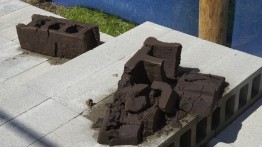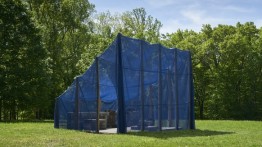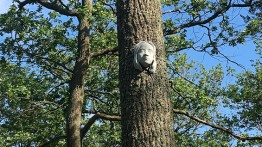Because it’s 68 Degrees in December: A Conversation with Fia Backström and Gabriela Salazar
Wednesday, September 25, 2019, 7 - 8:30pm
“Ecology is the discovery of the decade. For the last thirty years we’ve left it up to environmentalists, joking about it on Sunday so that we can act concerned again on Monday. And now it's caught up to us, invading the airwaves like a hit song in summertime because it’s 68 degrees in December.”–The Invisible Committee
During this free, open event, artists’ Fia Backström and Gabriela Salazar address why the climate crisis, a now unavoidable topic, presides in their practice. We are situated in the denouement of humanity: knowing this, how does one cope or digest the world as an artist. Through the prism of climate, Fia and Gabriela will discuss the importance of collectivity, environment, and non complacency in relation to their respective projects: Facing Her Land – Notes from elsewhere and Matters in Shelter (and Place, Puerto Rico). Omar Berrada, adjunct instructor in the School of Art, moderates. The event was organized as part of Cooper Union x Climate Week.
General public should reserve a space. Please note seating is on a first come basis; an RSVP does not guarantee admission as we generally overbook to ensure a full house.
Fia Backström’s work focuses on the fabric of co-existence and the construction of collective subjectivity through the social lives of images and language. Backström, who is also assistant professor in the School of Art, works with imaginary, historical, and current systems, destabilizing authorship and their material semiotics. Her work unfolds in a range of media including photography, text, performance, typography, ephemera, objects, social exchange, and pedagogical methods. Her environments, events, and procedures challenge habitual notions of what constitutes an exhibition – its institutional context, its dialogue with the audience, and even the works of art that are presented.
Through sculpture, drawing, writing, and site interventions, Gabriela Salazar’s projects investigate the relationship between human-made spaces and structures and the unpredictable or invisible forces (the shifting of land, the pressures of gravity, the passing and layering of time) that act upon them. Ultimately, the work reframes how we are affected by the changes in what we create. Gabriela uses found materials and sites, engaging in wordplay, psychogeography, and phenomenology to bring out new associations between the found, the altered, and the made. Within the phenomenological response to the work is the friction between our assumptions about and ideals for the built environment, and its simultaneous, imperfect, transient, and intangible realities.
Located in the Frederick P. Rose Auditorium, at 41 Cooper Square (on Third Avenue between 6th and 7th Streets)







